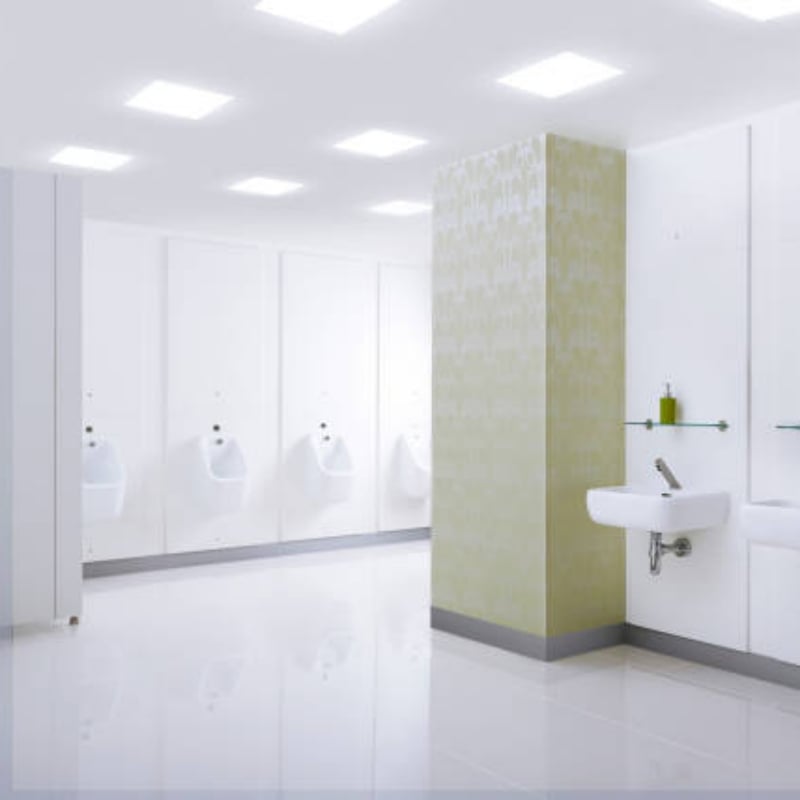The Importance of commercial bathroom urinals in Business Settings
When it comes to designing and maintaining a commercial restroom, every detail matters. One crucial element that often gets overlooked is the selection of the right urinals. In this article, we will explore the various aspects of commercial bathroom urinals that businesses need to consider. From the benefits they offer to the different types available in the market, we will provide you with a comprehensive guide to help you make informed decisions for your business. So, let's dive in!
1. Efficiency and Water Conservation
Commercial bathroom urinals play a significant role in water conservation efforts. Traditional urinals used to consume a large amount of water per flush, contributing to excessive waste. However, modern urinals are designed with water-saving technologies. Waterless urinals, for example, use no water at all, helping businesses reduce their water consumption significantly. Water-efficient urinals, on the other hand, use a minimal amount of water per flush, ensuring efficient operation without compromising hygiene.
2. Hygiene and Sanitation
Maintaining a clean and hygienic restroom is crucial for any business. Commercial bathroom urinals are designed to promote hygiene and sanitation. Many urinals feature touchless technology, allowing users to operate them without any physical contact. This not only reduces the spread of germs and bacteria but also provides a more pleasant experience for users. Additionally, some urinals come with built-in antimicrobial surfaces that inhibit the growth of bacteria, ensuring a more sanitary environment.
3. Space-Saving Design
Businesses often have limited space in their restrooms, especially in crowded establishments such as restaurants, offices, and shopping malls. Commercial bathroom urinals are specifically designed to maximize space utilization. Wall-mounted urinals, for instance, take up minimal floor space, allowing for better traffic flow and more room for other essential fixtures. Compact and sleek designs further enhance the aesthetics of the restroom while providing convenience to users.
4. Accessibility and ADA Compliance
Accessibility is a crucial consideration for businesses, as they need to ensure that their restrooms comply with the Americans with Disabilities Act (ADA) guidelines. Commercial bathroom urinals can be installed at varying heights to accommodate individuals with different physical abilities. ADA-compliant urinals are designed with accessibility features such as proper height, clear floor space, and accessible controls, making them usable for people with disabilities.
5. Durability and Low Maintenance
Business owners and facility managers understand the importance of investing in durable and low-maintenance fixtures. Commercial bathroom urinals are typically made from robust materials such as vitreous china or stainless steel, ensuring long-lasting performance. These materials are resistant to wear, stains, and corrosion, making them ideal for high-traffic restrooms. Additionally, many urinals feature self-cleaning options and easy-to-clean surfaces, minimizing the time and effort required for maintenance.
6. Design Options to Suit Any Aesthetic
Commercial bathroom urinals are available in a wide range of designs to suit the aesthetic preferences of different businesses. From sleek and modern styles to more classic and traditional options, there is a urinal design for every setting. The ability to choose from various colors, shapes, and finishes allows businesses to create a cohesive and visually appealing restroom environment that aligns with their brand identity.
7. Water Supply and Drainage Considerations
Before installing commercial bathroom urinals, businesses need to carefully consider water supply and drainage requirements. Traditional urinals typically require a dedicated water supply line and a drainage system. However, waterless urinals eliminate the need for water supply and only require a proper drainage system. Water-efficient urinals may require a smaller water supply line and drainage system compared to conventional fixtures. Consulting with a professional plumber or restroom designer can help ensure a seamless installation process.
8. Privacy and Partition Options
Privacy is an important aspect of any restroom, including those with urinals. Many businesses choose to install privacy partitions between urinals to provide users with a sense of privacy and comfort. These partitions can be made from various materials such as stainless steel or high-density polyethylene (HDPE). They not only enhance privacy but also contribute to the overall aesthetics of the restroom.
9. Cost Considerations and Return on Investment
When selecting commercial bathroom urinals, businesses need to consider both the upfront costs and the long-term return on investment (ROI). While waterless urinals may have a higher initial cost, their water-saving capabilities can lead to significant savings on utility bills in the long run. Additionally, durable urinals that require minimal maintenance can reduce ongoing operational costs. By carefully evaluating the costs and benefits, businesses can make financially sound decisions.
10. Eco-Friendly Practices and Certifications
Increasingly, businesses are prioritizing eco-friendly practices and certifications to demonstrate their commitment to sustainability. Many commercial bathroom urinals are designed to meet eco-friendly standards and may even come with certifications such as Water Sense. By choosing urinals with these certifications, businesses can contribute to a greener environment while showcasing their environmental responsibility to customers and stakeholders.

